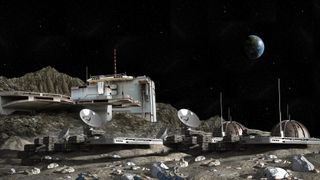Asteroid news, features and articles
Latest about Asteroids
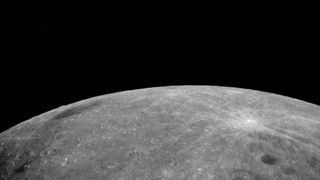
An extra moon may be orbiting Earth — and scientists think they know exactly where it came from
By Stephanie Pappas last updated
The near-Earth asteroid Kamo'oalewa, which orbits alongside our planet as a 'minimoon,' may have originated from Giordano Bruno crater on the far side of the moon, new research suggests.
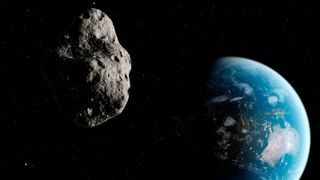
2,000-foot-wide 'potentially hazardous' asteroid has just made its closest approach to Earth — and you can see it with a telescope
By Harry Baker published
The 2,000-foot-wide asteroid 2013 NK4 just made its closest approach to Earth in recorded history, sailing by at about eight lunar distances. You can still see the massive rock with a backyard telescope.
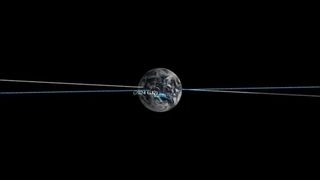
Car-size asteroid discovered 2 days ago flies by Earth at 1/30th the distance of the moon
By Josh Dinner published
A newly discovered asteroid got within 12,000 miles of Earth on a harrowing, ultra-close approach today. The space rock won't return for 70 years.

Boulders flung from NASA's asteroid-smashing DART mission could crash into Mars, study predicts
By Joanna Thompson published
Dozens of boulders dislodged by NASA's asteroid-smashing DART test could hit Mars in the future, new research suggests.
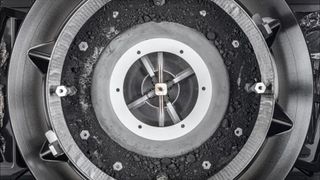
'Potentially hazardous' asteroid Bennu contains the building blocks of life and minerals unseen on Earth, scientists reveal in 1st comprehensive analysis
By Sharmila Kuthunur published
Scientists shared the first comprehensive science results from NASA's OSIRIS-REx asteroid-sampling mission at the Lunar and Planetary Science Conference, revealing the out-of-this-world makeup of asteroid Bennu.
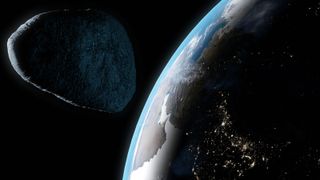
Zero chance of potential city-killer asteroid 'Apophis' smashing into Earth in 2029, new study confirms
By Harry Baker published
Computer simulations reveal that the close flyby of Apophis, the "God of Chaos" asteroid, in 2029 still poses no risk to Earth, even when a worrying, previously unrecognized factor is taken into account.
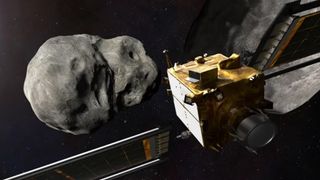
NASA's asteroid-slamming DART mission completely changed the shape of its target
By Robert Lea published
NASA's DART spacecraft seems to have completely reshaped asteroid Dimorphos after violently crashing into it in Sept. 2022
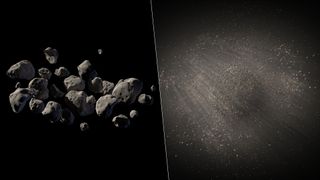
Earth has extra moons, and they may hold the secrets of our solar system's past
By Kiley Price published
Earth's closest cosmic companions, known as 'minimoons' or 'quasi-moons', could hold the secrets to the history of our early solar system.

NASA grabbed a whopping 120 grams of rubble from asteroid Bennu, and it may contain the seeds of life
By Ben Turner published
NASA's final tally shows that OSIRIS-REx collected roughly 4 ounces (120 grams) of material from asteroid Bennu. The sample collected from the "potentially hazardous" asteroid is thought to contain some of the earliest precursors for life.
Get the world’s most fascinating discoveries delivered straight to your inbox.
 Live Science Plus
Live Science Plus










